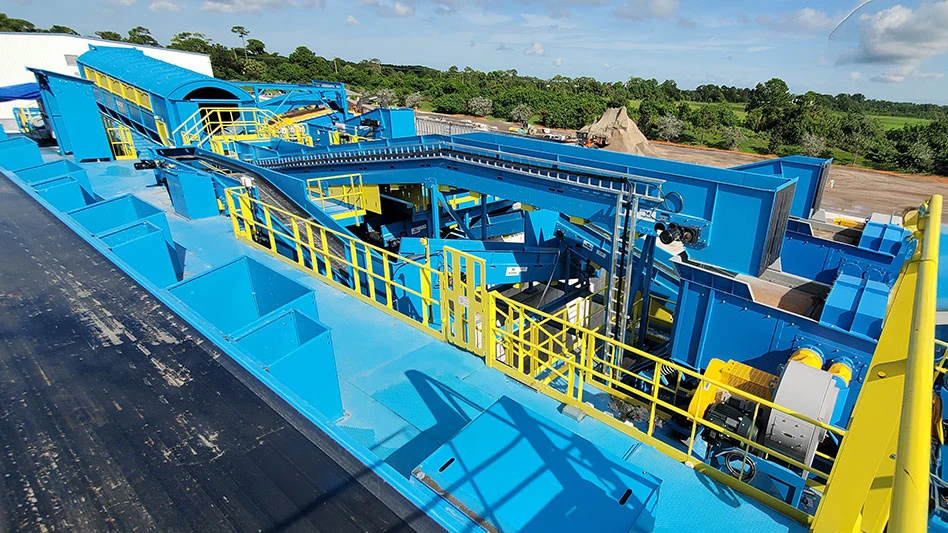A recycling company in Europe found uranium oxide -- a radioactive material also known as yellowcake -- in a shipment of scrap steel it believes originally came from Iraq, the company.
Paul de Bruin, spokesman for Rotterdam, Netherlands-based Jewometaal, said that the shipment was passed on last month from a Jordan metal dealer who was unaware it contained any forbidden materials.
"I've dealt with this man for 15 years and he says he's sure it came from Iraq," De Bruin said. He said Jewometaal had been asked not to reveal the name of the Jordanian exporter while the find was being investigated, according to the Associated Press.
The container with the uranium was discovered after the company’s gate detector indicated an excessive level of radiation coming from the container.
Nuclear experts say that although not highly radioactive, uranium oxide can be processed into enriched uranium usable in a nuclear weapon -- but highly advanced technology is needed.
The Dutch Environment Ministry confirmed that Jewometaal reported the unusual find on Dec. 16. After a preliminary investigation by a company that specializes in removing radioactive waste, the Dutch government decided to call in the International Atomic Energy Agency to investigate further.
Environment ministry spokesman Wim van der Weegen said scrap metal companies in the Rotterdam port, which is Europe's largest, report around 200 findings of radioactive material per year, often from old hospital equipment or normal industrial uses.
However, he said there was no obvious non-nuclear industrial use for yellowcake and it would be strange to find it in random scrap metal. The Dutch Environmental Ministry contacted the International Atomic Energy Agency. The agency began its examination of the container Jan. 14th.
"It could be from anywhere in the world," Van der Weegen said. After testing, the material was shipped to a nuclear waste plant in the Netherlands.
Scrap enters the port of Rotterdam in containers from all over the world and then has to be traded and processed. These scrap containers quite regularly contain sources of excessive radiation, which may be discarded hospital equipment, or material that has come from old stainless steel forges. These materials can become ‘contaminated’ with radiation during the manufacturing process. Around two hundred such incidents are reported to the VROM Inspectorate each year, but most finds are not sufficiently serious to report to the IAEA. Given that the radiation levels are relatively low, these sources of radiation generally pose no immediate danger to the environment. Nevertheless, the Dutch government wants to avoid these sources of radiation being processed any further and that is why the Dutch scrap companies use detectors to locate such sources and report any finds to the VROM Inspectorate. These are then investigated and the possible source is moved to a special storage site for nuclear waste run by the VROM Inspectorate.
Last year, the United States agreed to pay $3.4 million to install radioactivity detectors in Rotterdam to scan a fraction of the 6 million containers that pass through it annually for hidden radioactive material.Latest from Recycling Today
- Greenwave raises revenue but loses money in Q2 2025
- Recycled steel prices hold steady
- EY says India’s need for scrap imports will continue
- Coming full circle
- Amcor, DCM introduce fertilizer packaging with 35 percent recycled content
- Comstock Metals gets closer to commissioning commercial-scale solar panel recycling facility
- Washington selects Circular Action Alliance as PRO
- Smurfit Westrock expands in Latin America





